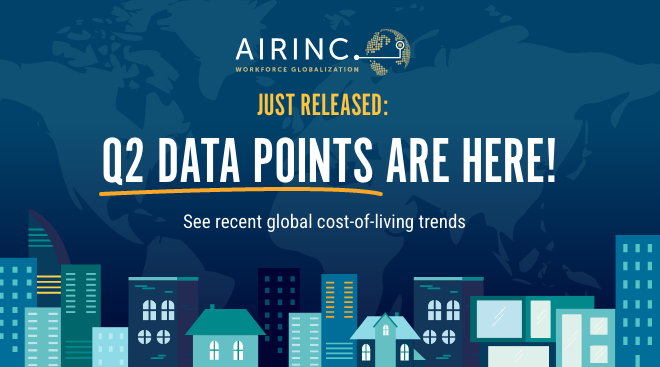Each quarter, AIRINC releases Data Points, providing in-depth insights from our extensive global cost-of-living research. We survey over 300 cities annually, with major business hubs reviewed twice a year and volatile locations monitored even more frequently. Drawing from thousands of host locations across 150 countries, AIRINC delivers the most up-to-date and precise data, empowering global mobility professionals to make informed and strategic decisions.
Let’s dive into the current state of rental markets worldwide, highlighting the dynamic changes influencing expatriate living conditions.
Baku, Azerbaijan: The influx of expatriates, including those from Russia, continues to pressure the rental market. Competition is high across all property segments, leading to higher rents as construction and investment in new properties lag behind demand.
India: Major cities like Chennai, Mumbai, New Delhi, and Bangalore have seen significant rent increases over the past six months. This surge is tied to the booming local economy, which has boosted tenant incomes and created a tighter supply for high-quality properties.
Moscow, Russia: After years of declining prices, Moscow's rental market is experiencing a resurgence. Demand from both locals and expatriates has increased, driving up rents and resulting in a low vacancy rate.
Netherlands: Cities like Rotterdam, Amsterdam, and The Hague are facing low rental supply and high demand, pushing rents upwards. New government regulations are also prompting property owners to sell rental units, further tightening the market.
Spain: The recent Housing Act has introduced uncertainty for landlords, prompting many to convert long-term rentals into seasonal or holiday rentals. Combined with high interest rates deterring property purchases, rental demand remains strong.





%20(28).png)


